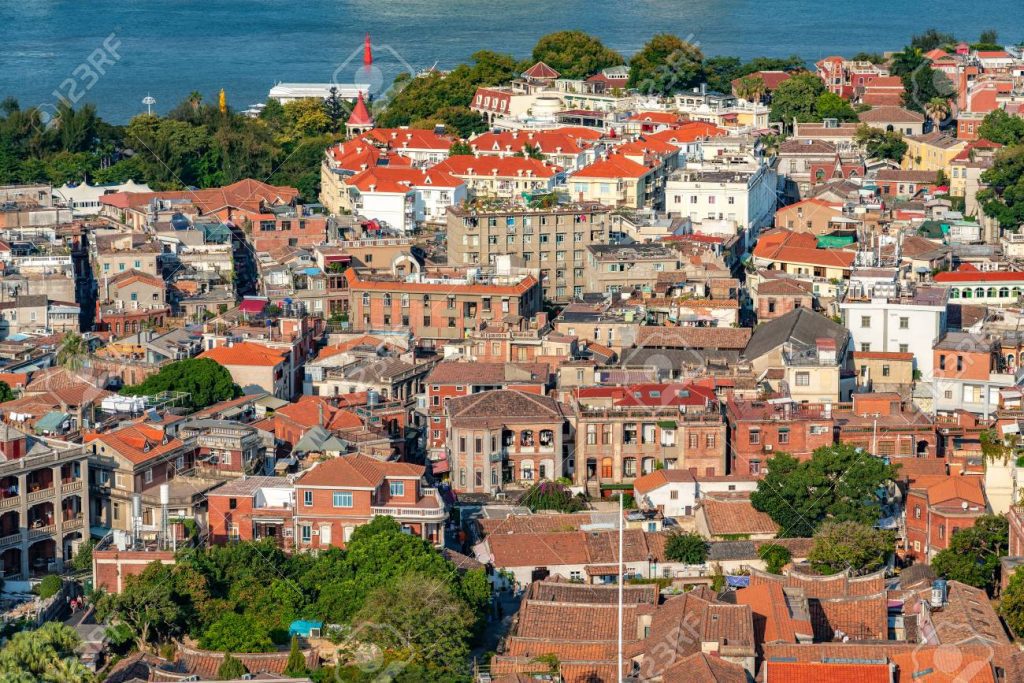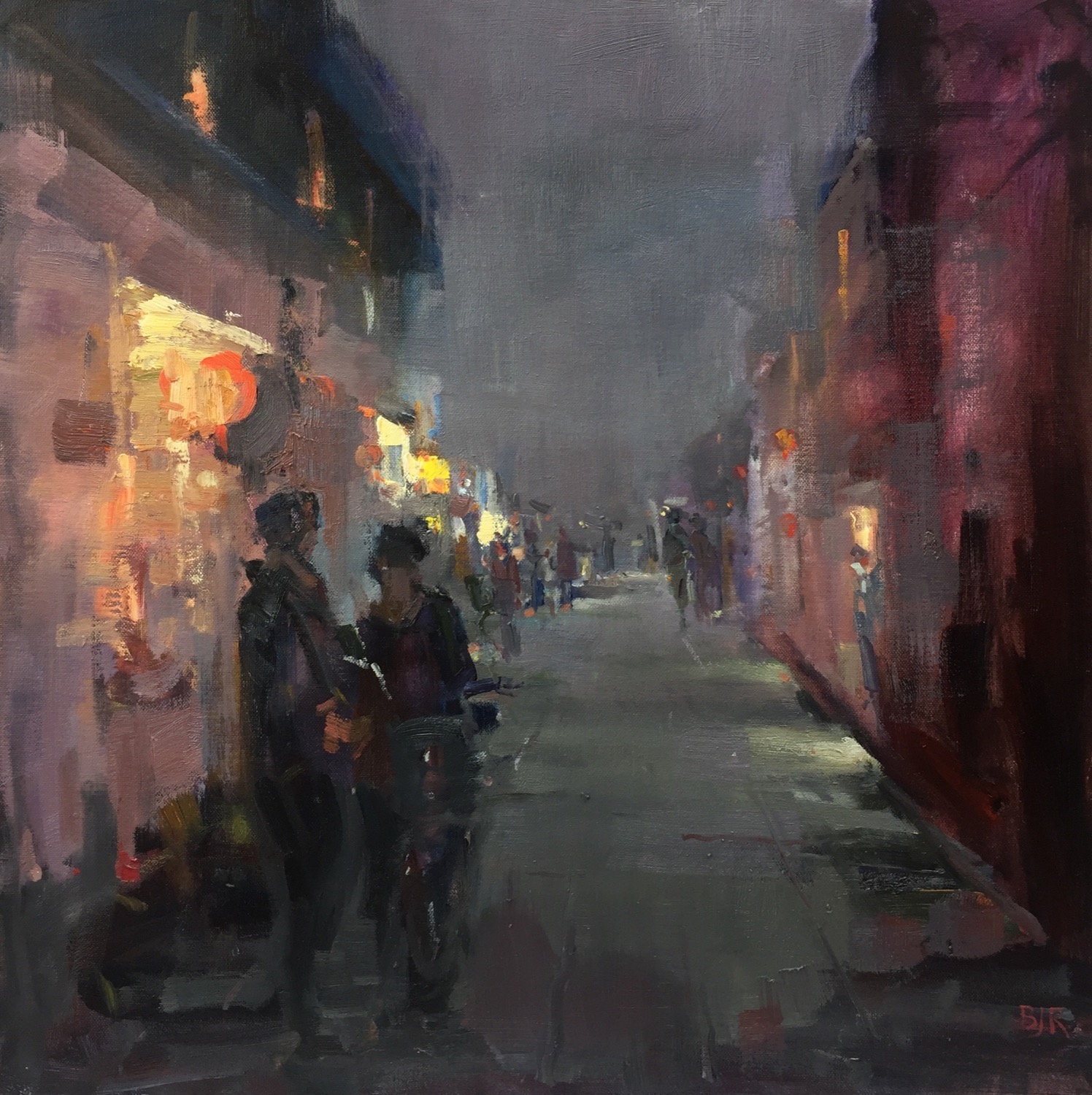Oil Painting Demonstration
Here is an oil painting demonstration of one of my larger studio paintings. I normally paint outdoors but sometimes I like to explore a composition in the studio. This scene is in Xiamen, China where I lived for a year. It is of Xiamen’s night market, where I often used to go for a delicious evening seafood snack.
Kowtow and Ketchup
Xiamen used to be called ‘Amoy’. It was a major center for North American and European trade with China. Xiamen was invaded and captured by the British in 1841, much to my embarrassment (to my knowledge the Chinese hadn’t invaded Britain!). Luckily the locals don’t harbor any grudges, and I have lots of artist friends now in Xiamen, including the founder of Xiamen’s Art Academy and his son.

It is full of large European and American colonial houses. Just about all the major European powers had houses there: the Spanish, the Dutch, the British. the Americans, the Germans and many more western countries.
Sidenote: kowtow (磕頭; khàu-thâu), “ketchup” (鮭汁; koê-chiap) originated from Amoy dialect.

Here is a short video showing the island of Gulangyu just off the coast of Xiamen.
Interesting Snippets Of History From Wikipedia
It was a little embarrassing for me, being British, visiting the historic old fort called Hulishan Fortress next to the apartment block where I was living. The was a plaque in the fortress near several cannon explaining how the British navy used their cannons against the virtually defenseless Chinese. The British needed Amoy as a center to sell heroin to the Chinese in order to earn money to buy their breakfast tea from India! Not something that was emphasized in the history books when I was growing up!
The Battle of Amoy was fought between British and Qing forces at Amoy (present-day Xiamen) on Xiamen Island, Fujian, in the Qing Empire on 26 August 1841 during the First Opium War. The British captured the forts at Xiamen and on nearby Gulangyu Island (formerly Kulangsu Island).
“On August 25, 1841, the British approached the town of Amoy, whose forts were armed with a hundred of the heaviest Chinese guns. These guns being almost useless, and the commanders lacking in resource, the capture of the harbour was child’s play. Under cover of a heavy barrage, British ships drew near the walls of Kulangau, landed their marines, and after a short stand the Chinese troops were driven out. The twenty-six battle-junks with 128 guns in the harbour were also captured, their crews having fled. One battery, manned by Tartars, heroically held out against the combined fire of three British ships, but a British landing was effected in their rear and the post wiped out.”
Glossary of terms used in this oil painting demonstration
alla prima
Alla prima is a method of painting in which you complete the painting in one session while the paint is still wet. This is in contrast to other methods in which you paint the work over several painting sessions with the paint drying in between sessions. These other methods includethe impressionist technique and glazing-based techniques.
Alternative terms: wet-in-wet, direct painting.
Impasto
Using thick paint.
To Learn More
If you would like to learn more about Barry’s painting process, you can find a detailed description in Process: The Complete Guide To Alla Prima Painting For Oil, Acrylic, And Watercolor Painters